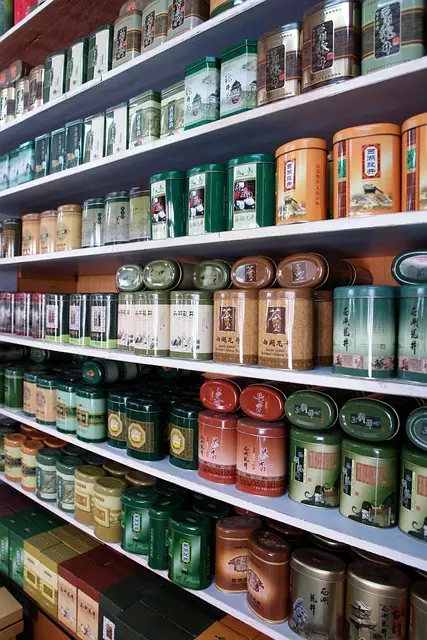Revolutionizing Food Packaging: Sustainable Solutions and Customization Trends
Stackable food packaging is a game-changer in the culinary industry, offering sustainable food packa…….
Introduction
In the heart of the Midwest, Indianapolis stands as a significant hub for innovation and industry, with “Food Packaging Indianapolis” playing a pivotal role in the region’s economy and environmental landscape. This comprehensive article delves into the multifaceted world of food packaging within this vibrant city. We will explore its core components, historical context, significance, and how it intersects with global trends and economic dynamics. Readers will gain insights into technological advancements shaping the industry, the policies that govern it, the challenges it faces, and what the future may hold for “Food Packaging Indianapolis.”
Understanding Food Packaging Indianapolis
“Food Packaging Indianapolis” encompasses the processes and products designed to protect food from contamination, extend its shelf-life, and facilitate distribution. This sector is a critical link in the food supply chain, ensuring that consumers receive safe and high-quality products. The history of food packaging in Indianapolis dates back to the early 20th century when local entrepreneurs began exploring innovative packaging solutions to meet the growing demands of the agricultural sector.
Today, “Food Packaging Indianapolis” is a thriving industry characterized by its commitment to sustainability, food safety, and technological innovation. It comprises various components, including material sourcing, design and production, distribution, and recycling or disposal. The industry’s significance lies in its ability to support the broader agricultural and retail sectors, contributing to the local and national economy.
Global Impact and Trends
The influence of “Food Packaging Indianapolis” extends beyond its local boundaries, as it is part of a global network of packaging innovation. International trends such as the push for sustainable materials, the rise of e-commerce, and the demand for convenience and freshness are shaping the trajectory of food packaging worldwide. In regions like Europe and Asia, there is a growing emphasis on biodegradable and compostable packaging to address environmental concerns.
In contrast, Latin American markets are experiencing rapid growth due to increasing urbanization and consumer spending power. African markets present unique opportunities and challenges due to varying infrastructure levels and consumer behavior patterns. “Food Packaging Indianapolis” contributes to these global trends by being a testing ground for new technologies and sustainable practices that can be scaled internationally.
Economic Considerations
The economic landscape of “Food Packaging Indianapolis” is dynamic, with market dynamics influenced by consumer demand, technological advancements, and trade policies. Investment patterns in this sector reflect a balance between traditional materials like paper and plastic and emerging alternatives such as bioplastics and edible packaging. “Food Packaging Indianapolis” plays a crucial role in economic systems by creating jobs, driving innovation, and fostering sustainable practices that align with both business objectives and environmental stewardship.
Technological Advancements
Technological advancements have revolutionized the field of food packaging, introducing smart packaging with embedded sensors to monitor product freshness, digitally printed packaging for enhanced branding, and active packaging with properties that react to the product’s environment. Innovations like edible cutlery and dissolvable capsules are setting new benchmarks for sustainability. These advancements not only enhance consumer experience but also contribute to a more sustainable future for “Food Packaging Indianapolis.”
Policy and Regulation
A complex web of policies and regulations governs “Food Packaging Indianapolis,” with federal, state, and local laws influencing its practices. The Food Safety Modernization Act (FSMA) is a significant piece of legislation that affects how food packaging companies operate. Additionally, environmental regulations such as those related to recycling and waste management play a vital role in shaping sustainable packaging solutions. These regulatory frameworks are essential for ensuring the safety and integrity of the food supply chain while promoting environmental responsibility.
Challenges and Criticisms
“Food Packaging Indianapolis” faces several challenges, including the need to balance cost-effectiveness with sustainability, addressing the problem of packaging waste, and adapting to rapidly changing consumer preferences. Critics often point out the overuse of plastics and the environmental impact of packaging waste. To overcome these issues, stakeholders are investing in research and development for sustainable materials and exploring circular economy models that prioritize reuse and recycling.
Case Studies
Several case studies exemplify successful applications of “Food Packaging Indianapolis.” One such example is a local startup that developed compostable food containers made from corn starch, significantly reducing the environmental impact of single-use packaging. Another case involves a leading Indianapolis-based packaging company that pioneered a line of biodegradable packaging solutions, setting a new industry standard for sustainability. These success stories provide valuable lessons on innovation and responsible practices within the food packaging sector.
Future Prospects
The future of “Food Packaging Indianapolis” is poised for growth, with potential areas such as smart packaging technology, sustainable materials research, and the integration of e-commerce packaging solutions. Emerging trends like plant-based packaging and zero-waste initiatives are likely to gain traction, influencing the industry’s direction. Strategic considerations for stakeholders include investing in R&D, fostering partnerships across the supply chain, and adapting to consumer-driven sustainability movements.
Conclusion
“Food Packaging Indianapolis” is a multifaceted sector that plays a pivotal role in the global food supply chain, contributing to economic growth, environmental sustainability, and consumer safety. Its ability to adapt and innovate positions it as a leader in the global packaging industry, ready to tackle the challenges of today and tomorrow.
FAQs:
What is the significance of “Food Packaging Indianapolis” within the global context?
“Food Packaging Indianapolis” serves as an innovation hub for sustainable and technologically advanced packaging solutions that have global implications, influencing trends and practices worldwide.
How do economic factors influence “Food Packaging Indianapolis”?
Economic factors such as market demand, investment patterns, and trade policies directly impact the operational strategies of businesses within “Food Packaging Indianapolis,” shaping both innovation and sustainability efforts.
What are some of the key regulatory challenges faced by the food packaging industry in Indianapolis?
Key regulatory challenges include adhering to food safety standards set by the FSMA, complying with environmental regulations for waste management and recycling, and navigating complex labeling requirements.
How is technology changing the landscape of “Food Packaging Indianapolis”?
Technology is revolutionizing “Food Packaging Indianapolis” through smart packaging with sensors for freshness monitoring, advanced materials science for sustainable alternatives, and digital printing for enhanced branding and personalization.
What are some of the most pressing challenges in the industry?
Some of the most pressing challenges include addressing packaging waste, balancing cost-effectiveness with sustainability, and adapting to rapidly evolving consumer preferences and expectations.

Stackable food packaging is a game-changer in the culinary industry, offering sustainable food packa…….

Frozen products require specialized food packaging solutions to maintain quality and freshness, with…….

The demand for eco-friendly food packaging solutions is growing due to consumer concern over environ…….

Insulated food packaging is revolutionizing the culinary industry by maintaining freshness and quali…….

Food packaging solutions are undergoing a green transformation driven by the need to reduce environm…….

The current reliance on traditional, non-renewable food packaging materials poses significant enviro…….

Vacuum-sealed food packaging is a cutting-edge, sustainable solution that extends shelf life, improv…….

The food packaging industry is transitioning towards eco-friendly options, driven by consumer demand…….

In a competitive market, custom food packaging leveraging sustainable food packaging solutions is a…….